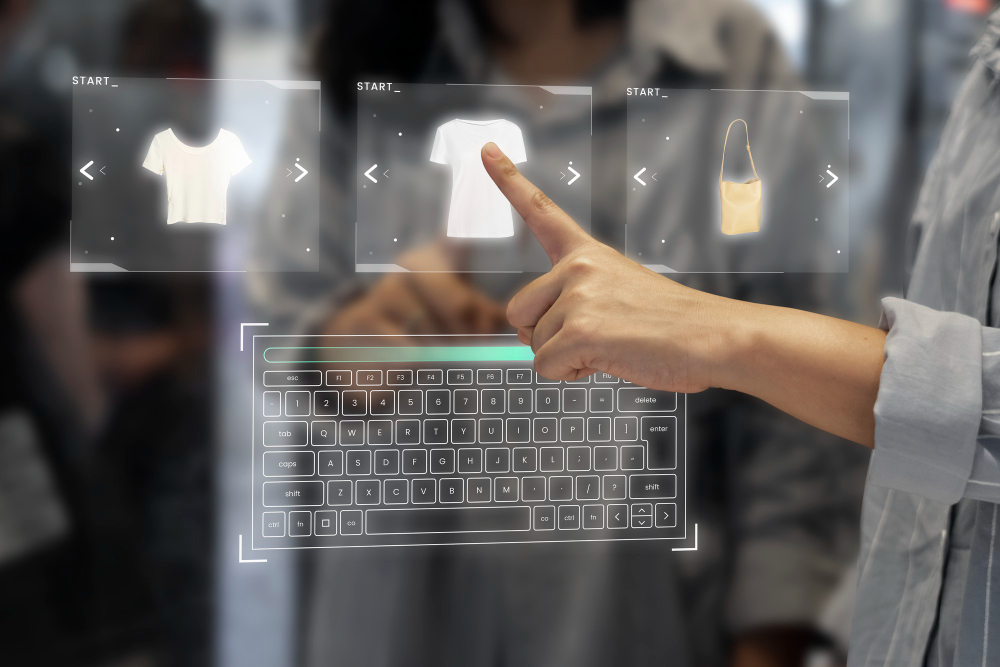Table of contents
The Future of Fashion is being shaped by groundbreaking technologies, shifting consumer behaviors, and a rising demand for sustainability and personalization. As digital innovation permeates every industry, fashion is no exception. From AI-driven design to virtual fashion shows and biofabricated textiles, the traditional fashion landscape is rapidly evolving into a high-tech, interactive, and inclusive space.
This article explores the key technologies revolutionizing fashion, the emerging trends to watch, and what they mean for brands, designers, and consumers in the years ahead.
Technological Innovations Shaping the Future of Fashion
👗 1. AI and Machine Learning in Design
Artificial intelligence is transforming the creative process by analyzing data to predict trends, suggest designs, and even generate fashion sketches. Platforms like Heuritech use AI to track style shifts across social media, helping brands stay ahead of the curve.
🧵 2. 3D Printing and On-Demand Manufacturing
3D printing allows for the creation of custom garments, footwear, and accessories with minimal waste. On-demand production reduces inventory excess, making the Future of Fashion more sustainable and efficient.
🌱 3. Sustainable and Smart Textiles
Innovative materials such as mycelium leather, recycled ocean plastic, and smart fabrics that react to temperature or moisture are setting a new standard for ethical fashion. Wearable tech is also being embedded in fabrics, enabling health monitoring and fitness tracking.
🕶 4. Augmented Reality (AR) and Virtual Try-Ons
Brands like Gucci and Zara are using AR to offer virtual try-on experiences via mobile apps. This tech helps shoppers make confident purchases while reducing returns—good for the planet and the bottom line.
🖥 5. The Rise of Digital Fashion and the Metaverse
With virtual platforms like Decentraland and games like Fortnite selling digital clothing, fashion is entering the metaverse. Designers can now create pieces that exist only in digital space, pushing the limits of creativity and redefining ownership.
Emerging Trends Defining the Future of Fashion
- Gender-Fluid and Inclusive Fashion: Unisex collections and size-inclusive designs are becoming the norm, reflecting a move toward broader acceptance and representation.
- Rental and Resale Economy: Platforms like Rent the Runway and Depop are shifting the focus from ownership to access and reuse.
- Fashion NFTs: Unique digital garments are being sold as NFTs, opening up new revenue streams for designers and collectors.
- Hyper-Personalization: With the help of data analytics, fashion brands are offering personalized shopping experiences, from curated product recommendations to made-to-order garments.
- Circular Fashion: Closed-loop systems where clothes are designed to be recycled or composted are gaining traction.
Why This Evolution Matters
The Future of Fashion isn’t just about looking good—it’s about redefining the fashion system to be more responsive, ethical, and innovative. For brands, it’s a chance to lead with purpose and creativity. For consumers, it’s a movement toward mindful consumption and self-expression in a digitized world.
5 Frequently Asked Questions (FAQ)

AI, 3D printing, sustainable materials, virtual reality, and blockchain are among the top technologies revolutionizing fashion design, production, and retail.
Sustainability will play a major role, with brands adopting eco-friendly materials, circular systems, and waste-reduction strategies to meet consumer demand for responsible fashion.
Digital fashion refers to clothing designed for virtual environments. It reduces physical waste and allows designers to explore boundless creative possibilities.
Yes, but it will evolve. Stores will likely serve as immersive brand experiences supported by digital technologies like AR and AI-assisted personalization.
Consumers can start by exploring digital fashion platforms, supporting sustainable brands, and embracing tech-enhanced shopping experiences.
Final Thoughts
The Future of Fashion is vibrant, immersive, and transformative. As technology continues to advance, fashion will become more inclusive, personalized, and sustainable than ever before. Whether you’re a designer, a fashion tech innovator, or simply someone who loves to dress up—now is the time to embrace the future and rethink what fashion can be.





